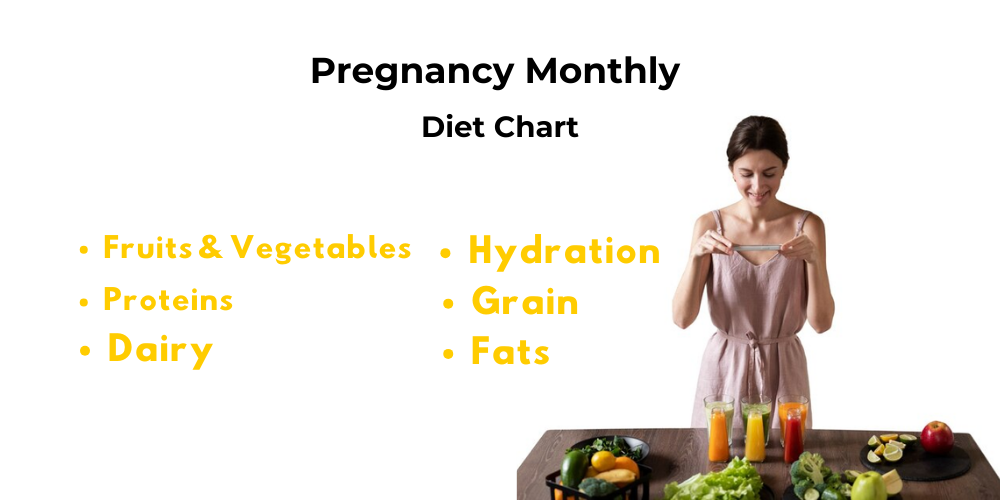Pregnancy is a beautiful journey filled with excitement, anticipation, and many changes. As an expecting mom, taking care of your health becomes paramount for yourself and your baby’s well-being. From maintaining a balanced diet to prioritizing mental wellness, numerous Health Tips During Pregnancy should be considered during pregnancy. This guide will delve into everything you need to know for a healthy and happy pregnancy.
Understanding Pregnancy
What is Pregnancy?
Pregnancy marks the beginning of a new life as a tiny embryo implants itself in the uterus. This miraculous process unfolds over approximately 40 weeks, divided into three trimesters.
Stages of Pregnancy
- First Trimester: The initial three months are characterized by rapid growth and development of the embryo. Expect symptoms like morning sickness and fatigue during this period.
- Second Trimester: Often referred to as the “golden trimester,” this phase brings relief from early pregnancy symptoms and a noticeable baby bump. It’s a time of increased energy and excitement as fetal movements become more pronounced.
- Third Trimester: As the due date approaches, the baby continues to overgrow, and the mother may experience discomfort due to the size of the baby and pressure on internal organs.
Common Pregnancy Symptoms
- Morning sickness
- Fatigue
- Frequent urination
- Food cravings and aversions
- Mood swings
Importance of Health Tips During Pregnancy
Maintaining good health during pregnancy is crucial for the well-being of both the mother and the baby. A healthy lifestyle can reduce the risk of complications and ensure optimal fetal development.
Impact of Health on Mom and Baby
A mother’s health directly impacts the growth and development of the fetus. Proper nutrition, regular exercise, and prenatal care contribute to a healthy pregnancy and lower the risk of preterm birth and birth defects.
Benefits of Maintaining Good Health
- Reduced risk of gestational diabetes and preeclampsia
- Better birth outcomes and lower risk of complications during labor and delivery
- Improved maternal mental health and well-being
Risks of Poor Health Tips During Pregnancy
Neglecting health during pregnancy can lead to various complications, including:
- Low birth weight
- Premature birth
- Developmental delays in the baby
- Maternal health issues such as hypertension and gestational diabetes
Nutrition During Pregnancy
Importance of a Balanced Diet
A well-balanced diet provides essential nutrients necessary for fetal growth and development. Aim for various foods from all food groups to ensure adequate nutrition.
Essential Nutrients for Pregnant Women
- Folic Acid: Crucial for preventing neural tube defects in the baby. Sources include leafy greens, fortified cereals, and supplements.
- Iron: Necessary for producing red blood cells and preventing anemia. It is found in lean meats, poultry, fish, and iron-fortified foods.
- Calcium: Vital for bone and teeth development in the baby. Dairy products, leafy greens, and fortified foods are excellent sources.
- Protein: Essential for the growth of tissues and organs in the baby. Include lean meats, poultry, fish, eggs, legumes, and nuts in your diet.
Foods to Eat and Avoid During Pregnancy
Foods to Eat:
- Fresh fruits and vegetables
- Whole grains
- Lean proteins
- Dairy products
- Healthy fats
Foods to Avoid:
- Raw or undercooked meat and eggs
- Unpasteurized dairy products
- Excessive caffeine and alcohol
- High-mercury fish
Tips for Healthy Eating During Pregnancy
- Eat small, frequent meals to alleviate nausea.
- Stay hydrated by drinking plenty of water throughout the day.
- Incorporate fiber-rich foods to prevent constipation.
- Choose nutrient-dense snacks like yogurt, nuts, and fruits.
Exercise and Physical Activity
Benefits of Exercise During Pregnancy
Regular exercise offers numerous benefits for pregnant women, including:
- Improved mood and mental well-being
- Increased stamina and energy levels
- Better sleep quality
- Reduced risk of gestational diabetes and excessive weight gain
Safe Exercises for Pregnant Women
- Walking
- Swimming
- Prenatal yoga
- Low-impact aerobics
- Stationary cycling
Precautions and Guidelines for Exercise
- Consult with your healthcare provider before starting any exercise regimen.
- Avoid activities with a high risk of falls or abdominal trauma.
- Listen to your body and modify exercises to accommodate your growing belly.
- Stay hydrated and avoid overheating during exercise sessions.
Prenatal Care
Importance of Prenatal Check-ups
Regular prenatal visits are essential for monitoring the health of both the mother and the baby. These appointments allow healthcare providers to detect and address potential issues early on.
Schedule of Prenatal Visits
Prenatal visits typically occur:
- Once a month during the first two trimesters
- Every two weeks during the third trimester
- Weekly during the final month of pregnancy
Tests and Screenings During Pregnancy
Standard tests and screenings include:
- Blood tests to check for anemia and blood type
- Ultrasound scans to monitor fetal growth and development
- Genetic screenings for chromosomal abnormalities
Managing Pregnancy Discomforts
Morning Sickness
- Eat small, frequent meals throughout the day.
- Stay hydrated by sipping on ginger tea or lemon water.
- Avoid strong odours and spicy or greasy foods.
Fatigue
- Prioritize rest and relaxation.
- Take short naps during the day if needed.
- Delegate tasks and ask for help from friends and family.
Back Pain
- Practice good posture and use supportive pillows when sitting or sleeping.
- Engage in gentle stretching exercises to alleviate tension in the back muscles.
- Consider prenatal massage or chiropractic care for relief.
Swelling
- Elevate your legs whenever possible to improve circulation.
- Wear comfortable, supportive shoes.
- Avoid standing or sitting for prolonged periods.
Heartburn
- Eat smaller meals and avoid spicy or acidic foods.
- Stay upright for at least an hour after eating.
- Consider over-the-counter antacids as directed by your healthcare provider.
Tips for Managing Common Pregnancy Discomforts
- Stay hydrated to prevent dehydration, which can exacerbate symptoms.
- Experiment with natural remedies such as ginger for nausea and peppermint for heartburn.
- Communicate with your healthcare provider if symptoms persist or worsen.
Mental and Emotional Well-being
Importance of Mental Health Tips During Pregnancy
Explore with vikson-care that Pregnancy can be emotionally taxing, and it’s essential to prioritize your mental well-being. Hormonal changes, physical discomforts, and anxieties about labour and parenthood can contribute to mood swings and stress.
Coping with Stress and Anxiety
- Practice relaxation techniques such as deep breathing, meditation, and mindfulness.
- Stay connected with loved ones for emotional support.
- Seek professional help if feelings of anxiety or depression become overwhelming.
Seeking Support and Resources
- Join a prenatal support group or online community to connect with other expectant mothers.
- Attend childbirth education classes to learn coping strategies and relaxation techniques.
- Talk openly with your partner about your feelings and concerns.
Sleep During Pregnancy
Importance of Quality Sleep
Getting adequate rest is essential for both maternal and fetal health during pregnancy. Sleep is crucial in supporting immune function, hormone regulation, and overall well-being.
Common Sleep Challenges During Pregnancy
- Discomfort due to a growing belly
- Frequent urination
- Leg cramps
- Restless legs syndrome
Tips for Better Sleep During Pregnancy
- Establish a relaxing bedtime routine to signal to your body that it’s time to wind down.
- Use pillows to support your belly and alleviate pressure on your back and hips.
- Limit fluid intake in the evening to minimize nighttime bathroom trips.
Avoiding Harmful Substances
Effects of Smoking, Alcohol, and Drugs on Pregnancy
Exposure to tobacco smoke, alcohol, and illicit drugs during pregnancy can have serious consequences for both the mother and the baby. These substances increase the risk of:
- Miscarriage
- Preterm birth
- Low birth weight
- Birth defects
Tips for Quitting Smoking and Avoiding Alcohol and Drugs
- Seek support from healthcare providers, counselors, or support groups to quit smoking or substance abuse.
- Enlist the help of friends and family for accountability and encouragement.
- Explore alternative coping strategies such as exercise, relaxation techniques, or hobbies to distract from cravings.
Pregnancy Precautions and Safety Tips
Avoiding Certain Activities and Exposures
- Refrain from smoking, alcohol consumption, and illicit drug use.
- Avoid exposure to harmful chemicals, such as cleaning products and pesticides.
- Steer clear of activities with a high risk of falls or abdominal trauma, such as contact sports and extreme sports.
Tips for Traveling During Pregnancy
- Consult your healthcare provider before making travel plans, especially if flying or traveling long distances.
- Take frequent breaks during car trips to stretch your legs and improve circulation.
- Pack essential prenatal vitamins, medical records, and comfortable clothing.
Creating a Safe Environment at Home
- Install smoke detectors and carbon monoxide detectors throughout your home.
- Use non-toxic cleaning products to minimize chemical exposure.
- Baby-proof your home by securing furniture and electrical cords and covering sharp edges.
Postpartum Health and Wellness
Importance of Postpartum Care
The postpartum period, often called the “fourth trimester,” is a critical time for maternal recovery and adjustment to parenthood. Prioritizing self-care and seeking support are essential for a smooth transition.
Recovery Tips for New Moms
- Rest whenever possible and accept help from friends and family.
- Eat nutritious meals to support healing and breastfeeding.
- Stay hydrated and avoid excessive caffeine and alcohol consumption.
Adjusting to Life with a Newborn
- Be patient with yourself and your baby as you navigate the challenges of parenthood.
- Seek support from lactation consultants, parenting classes, and support groups.
- Communicate openly with your partner about your needs and feelings.
Conclusion
Congratulations on embarking on this incredible journey of motherhood! Remember to prioritize your health and well-being throughout cream pie pregnancy, as it lays the foundation for a healthy start for your little one. By following these health tips during pregnancy and seeking support when needed, you can enjoy a beautiful and fulfilling pregnancy experience. Here’s to a happy and healthy pregnancy journey!


